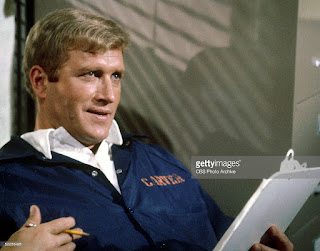Reasons
I occasionally have difficulty explaining to people the reasons for my virulent opposition to asshat Donald Trump and his quest to become the Republican nominee for President of the United States. This state of affairs baffles me. All one has to do to know he is unfit for that office is listen to the man talk.
Trump's train wreck of an answer to a question about abortion yesterday will do untold damage to the pro-life movement for years to come, even if he isn't the GOP nominee.
That alone is reason enough for conservatives to pronounce anathema on him.
Not convinced? Well, how about the fact that Trump is the darling of the National Policy Institute, a "think-tank" devoted to promulgating white supremacy? That these "white nationalists" loathe the Constitution and revere Trump doesn't give you pause? Did I mention that he welcomes their support?
Or how about the fact that Trump has said he wouldn't rule out using nuclear weapons to retaliate for terror attacks? (This from the guy who famously doesn't know what the "nuclear triad" even is.)
 |
| "You need to change the subject before you have a conniption." |
You may have a point...
Oh, What a Beautiful Mornin'!
 |
| Original 1943 lobby poster |
The first collaboration of the composer Richard Rodgers and librettist Oscar Hammerstein II marked the beginning of a creative partnership widely regarded as the greatest in the history of Broadway musicals.
The show itself was also groundbreaking, and became the model for subsequent "book" musicals. It's influence on musical theatre continues to this day.
The show remains a staple of high school and community theatre. When I was a sophomore in high school our school's production of Oklahoma! was the first live musical I had ever seen.
In a More Perfect World
From the indispensable comic strip Non Sequitur, by Wiley Miller, which you should read every day, as I do (even though Wiley is a squishy liberal).
Until Next Time...
This section of the blog is where I explain how various pieces of music and the artists who created them have figured prominently in my life to this point. More often than not, the material in this section also ties in to each particular day's date. Today I get to commemorate not one but two significant events in my musical life in this way.On March 31, 1949 RCA introduced the vinyl 7-inch 45 rpm single format, which was designed to be a higher-fidelity replacement for 10-inch 78 rpm shellac discs. It quickly became the standard format for music singles, and remained so for more than 30 years. For a brief time, RCA even issued 45s that were color-coded based on the type of music they contained.
During the formative years of my music-listening life, the 45 rpm single was the only way I could go beyond my parents' collection of LP records and begin collecting and listening to my own preferred artists. Even after I got to a point where I could afford
to purchase full-length albums, 45 rpm singles remained an important part of my record collection. Sometimes you only wanted a particular song, you know?
 |
| Original 1958 45 rpm single |
On March 31, 1958 (nine years later, to the day) Chess Records released Chuck Berry's single "Johnny B. Goode." It became Berry's fifth Billboard Hot 100 Singles Top 10 hit (peaking at No. 8), and his fourth No. 1 hit on the Hot R&B chart. It's importance far exceeded its chart performance, however.
It is one of most iconic songs in
rock and roll history, and has been covered by dozens of artists.
"Johnny B. Goode" was selected for the Rock and Roll Hall of Fame's collection 500 Songs That Shaped Rock and Roll. It was also selected for the Grammy Hall of Fame
in 1999.
Berry's signature hit was included on the Voyager Golden Record in 1977, meaning that when the Voyager 1 space probe reached the termination shock in December of 2004, "Johnny B. Goode" became the first rock and roll music to leave our solar system.
Today's send-off is the original 1958 monaural version of the song George Thorogood has called "The Rock and Roll National Anthem." Enjoy...
















































